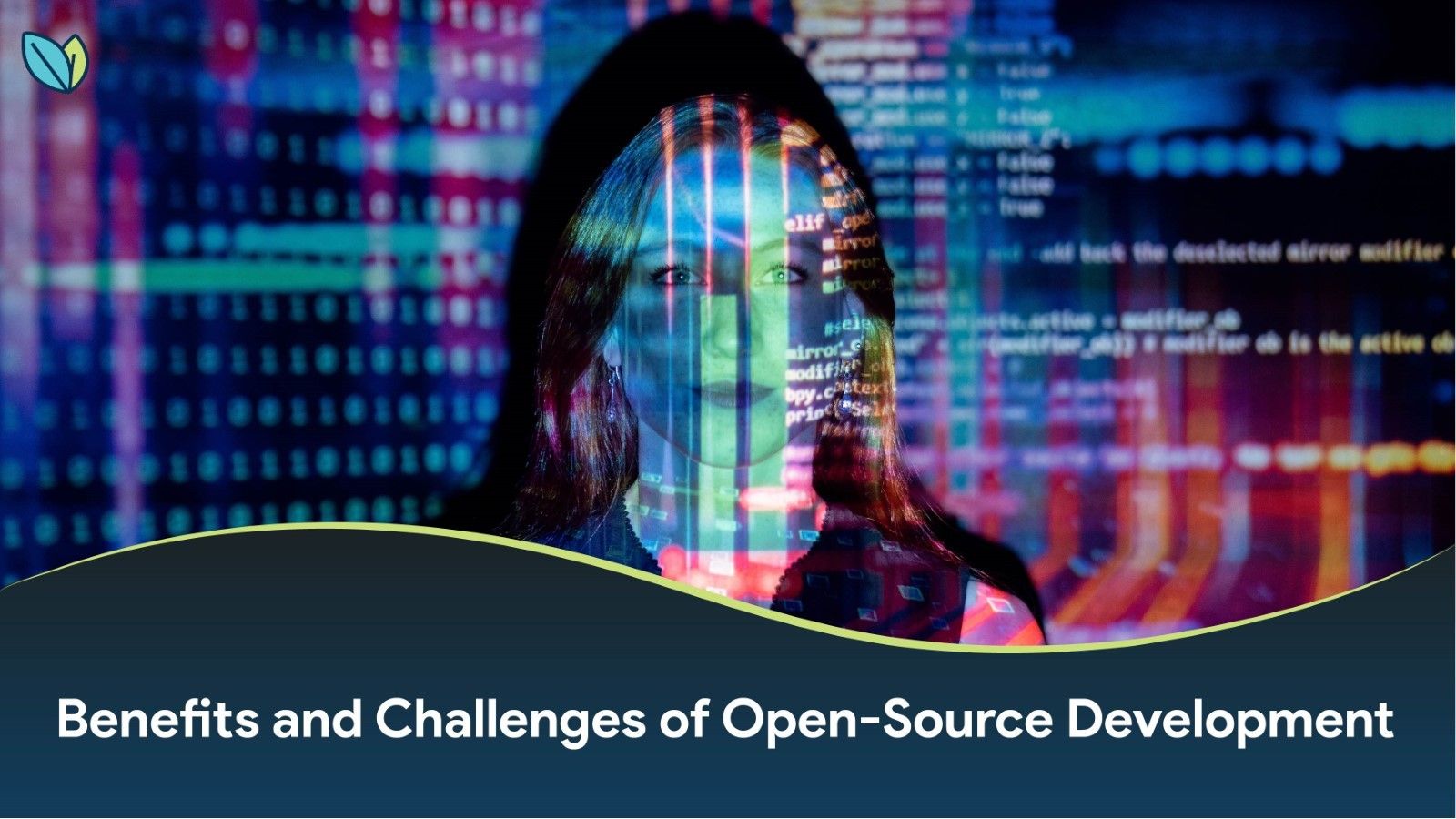
Benefits and Challenges of Open-Source Development
Open SourceOpen-source software (OSS) is the holy grail for developers. It is a hub of innovation through intense collaboration in this era of agile software development. Without it, many of the technologies we take for granted today would never have been developed or would have been locked away behind strict patents. The open-source movement is the reason technology has developed at such a breakneck pace over the past few decades.
For those who are new to OSS, it is source code that is: Publicly accessible
- Available to use, customize, manipulate, or examine
- Open for collaboration and redistribution
- Either free or paid
- Issued under a license granted by the copyright holder
Benefits of Open Source for Developers, Teams, and Companies****Integrated Growth****

OSS is the ultimate example of individual-level growth incorporating and leading to community-level development. Millions of contributors across the globe are working on projects simultaneously, opening issues, fixing bugs, adding new features, writing, reviewing pull requests, and discussing improvements to achieve a common goal. This makes OSS a great platform for developers to learn, grow and improve through collaborating with top developers across the world. Participants learn to behave professionally, adhere to a global Code of Conduct, and follow universally accepted coding standards for the project to be a success. A contribution can be as small as a typo change in the documentation or as big as a mammoth feature implementation and it will be accepted with constructive feedback, comments, and critique from the community. Thus, fostering inclusivity and motivation among contributors.
**Accelerated Development** With easy access to remodel and upgrade existing projects or bits of existing projects, developers accelerate their own development process. And not only faster development, but the higher quality and stable codebases also make it easier for the team to speed up future enhancements and ease maintenance.**Public Recognition**

Involvement in open-source projects benefits developers with both, a credible portfolio and a stronger skillset. The developer’s name is forever etched as the owner of that piece of source code and all the people who will ever use it, shall have used a little bit of their work and that is a HUGE deal in their career! Coming from a company that values open-source contributions from developers, a mention of such on the resume takes candidates a long way and is a valuable experience.
**Secure Code** While it might seem counter-intuitive, open-source codes are in reality very secure. Owing to a vast network of professionals involved in code auditing and testing, resulting in a fewer number of bugs. In cases when an end-user encounters a bug, the process of verifying credibility to discussing solutions and ultimately, fixing the bug is so streamlined and transparent, that the chances of going wrong are drastically reduced. While true, open-source programs are thoroughly and constantly vetted by experienced code maintainers, thier open nature still makes them vulnerable to potential bugs and have a security issues. This is often countered by an additional layer of security provided by high-profile Open-Source tools, issue trackers, and intrusion detectors.
Challenges while working with open-source software

While contributing to an OSS project is exciting, getting started on the journey can be a bit daunting, especially for first-timers. Listed down are some challenges that may arise while contributing to or using OSS: Barrier to entry It is difficult to find open-source projects that are simple and easy to fix. Usually, a lot of the open problems are very complex and unless you have a deep insight into the product, it will not be possible for you to make valuable contributions. That said, there are many good first issues that help beginners get started.
Here are some good resources for finding beginner-friendly issues:
Stay tuned for our next blog for a more detailed guide to making your first open-source contribution!
Complex Learning Open-source environments are inclined more toward the innovative dimension. Adapting to OSS has a gradual learning curve. You just can’t expect to harmonize with operating systems like Linux from day one.
Non-compliance Open-source projects are released under licenses specified by the owner. The common thought is that since the code is open-source, it is available to use for any purpose, but this is not always the case. Failure to comply with the license can put you through legal notices, causing unwanted trouble. All the licenses have different T&C and it is important that you understand those before using the OSS. Here is a quick rundown on common OS licenses along with the corresponding commercial usage:

You can additionally learn more about the different licenses available here: https://choosealicense.com/licenses
Contributing to OSS & Source Community

At Incubyte, we are a group of passionate Software Craftspeople who like a good challenge, understand the importance of learning through collaboration, and are excited that our code can help others facing problems like ours. We are also big fans of using open-source technologies in our solutions. In our brief time of being around, our colleagues have made contributions to Micronaut and open-sourced our Kibana plugins. In the spirit of fostering a culture of open-source contributions, there are several global initiatives that one can access to sharpen programming skills.
A few that might help one be a better software developer:
Google Summer of Code (GSoC) Outreachy Hacktober Fest by Digital Ocean Linux Kernel Mentorship Program
Participating in these helps us learn and hone our skills with version control, software coding standards like clean coding, TDD, peer code reviews, source collaboration, continuous integration & continuous deployment (CI/CD), prioritizing features & bugs (project management) and more! We encourage students, software engineers, and professionals alike to participate in these events and are always on the lookout for more such events/activities that can help our colleagues grow, learn and add experience on a global scale. Have thoughts on how this culture can be promoted/shared by all? Would love to know your thoughts, reach out to me at arohi@incubyte.co!